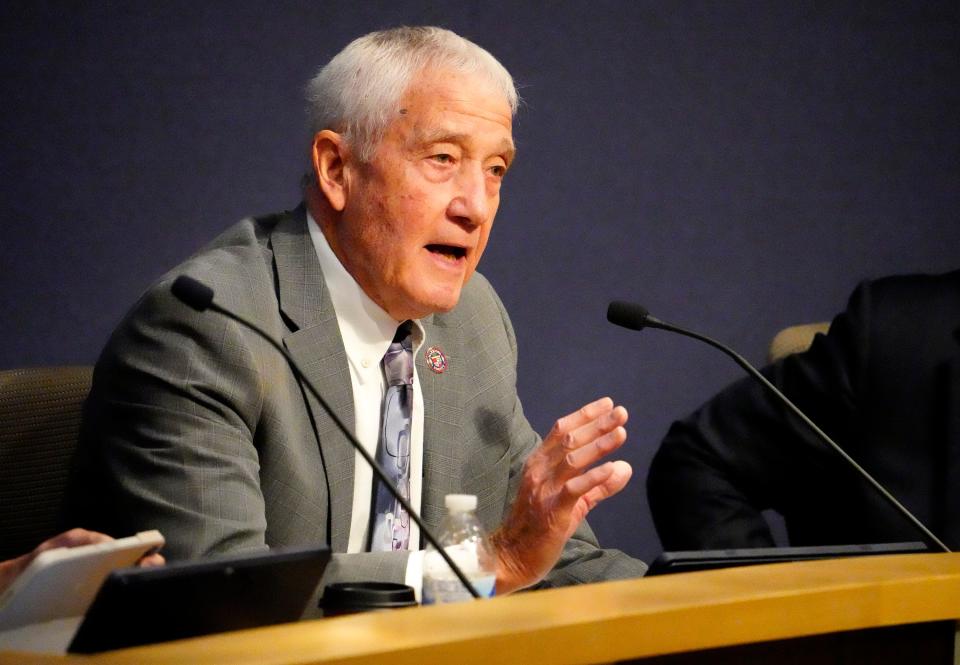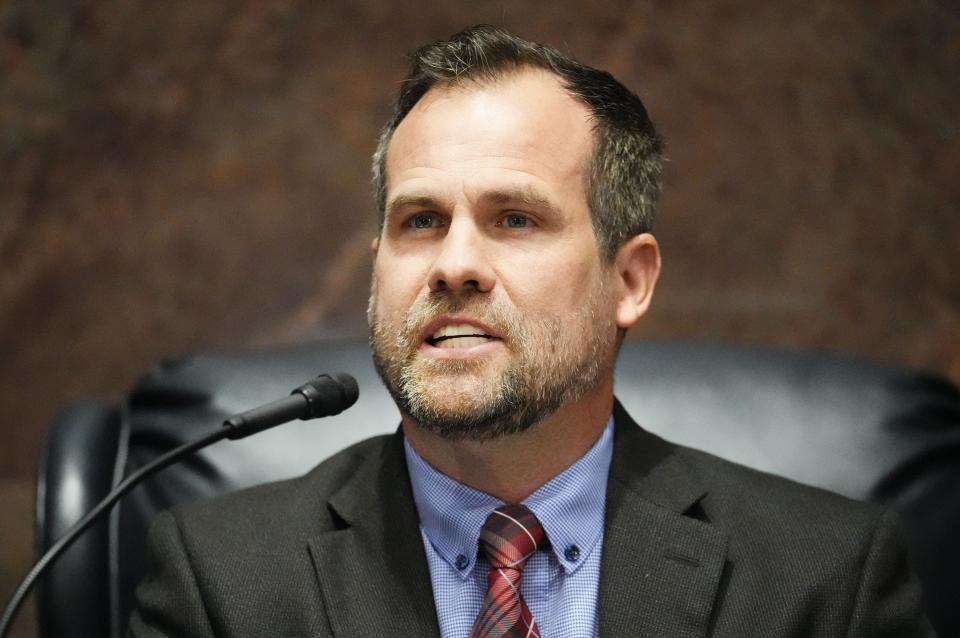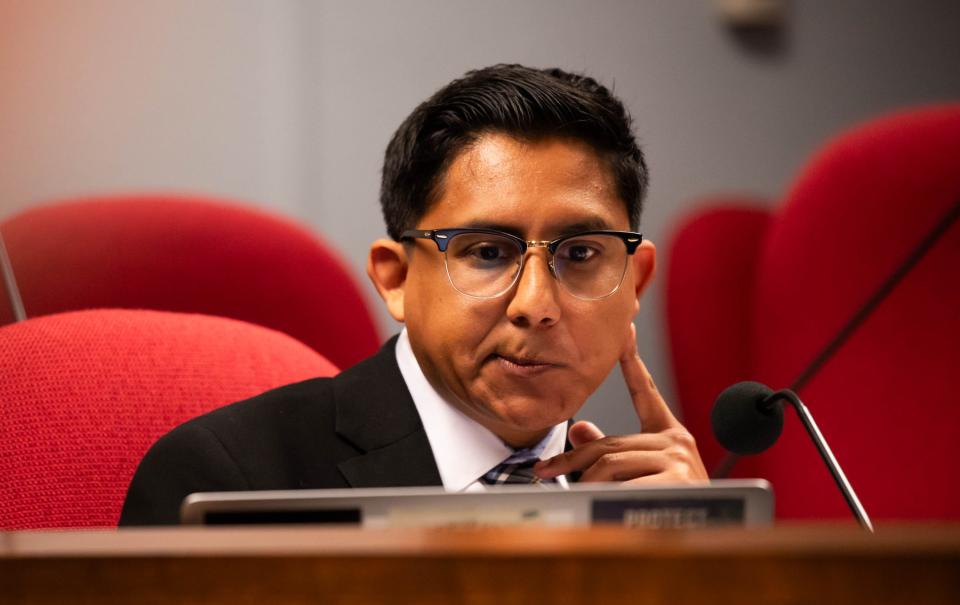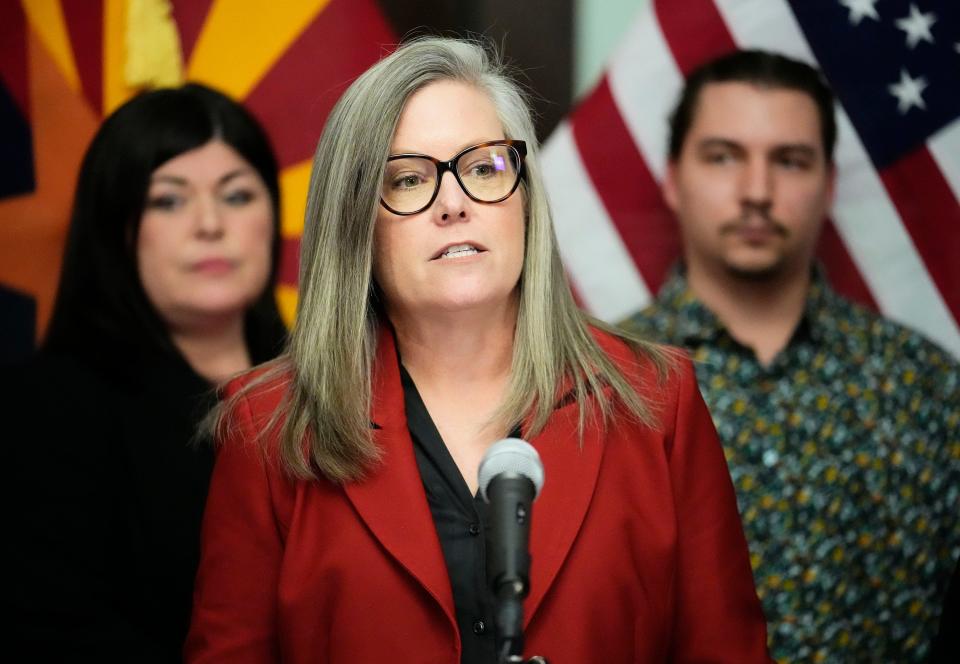Arizona could face an election calendar crisis. Here's what's holding up a solution
As a key deadline looms, Arizona lawmakers and election officials remain locked into rocky negotiations to find a fix to calendar issues posed by an automatic recount law for elections.
Elections officials statewide said the Legislature needs to act by Feb. 9 to ensure the law doesn't foil this year's elections. Failure to do so could delay ballots for the general election from going out to military and overseas voters. Later, inaction could block Arizona's presidential electors from voting at the Electoral College.
Everyone involved — lawmakers of both parties, the governor and county election officials — agrees a fix is needed. But as the deadline nears, work on a solution has been complicated by various demands, some of which are off-topic.

Those who administer Arizona's elections say those unrelated demands shouldn't bog down debate. Supervisor Jack Sellers of Maricopa County, the state's largest, said he was "discouraged" lawmakers had yet to agree to a fix. The state Association of Counties said in a statement Thursday that lawmakers need to "put aside partisan politics" to get a deal done.
"We need a clean solution to this problem," said Jen Marson, executive director of the Arizona Association of Counties. "What we don’t need is an all-you-can-legislate buffet of unrelated policy changes. An issue this significant deserves to be handled separately so that it can pass with bipartisan support and be signed into law in time."
Marson declined to give specific details, for fear of upending negotiations. But she listed some broad topics that have thus far hamstrung a resolution.
They include how early ballots are handled on election day, how signature verification on early ballots is addressed and the process for "curing" ballots. Curing is the term for addressing questions about a voter's mail-in ballot to determine whether it should be counted or not.
Marson said proposed policy changes come from both sides of the political aisle.
Republicans want changes that would get election results out quicker. Arizona famously can take weeks to finalize vote tallies, due in large part to the popularity of early ballots being returned on election day. That slows down ballot processing because those ballots need to be sorted and undergo signature verification, which generally delays a large chunk of results until days after the election.
Senate President Warren Petersen, R-Gilbert, said Arizona should be more like Florida. There, race results are known on election night, or at least on the following morning.

Republicans have rallied behind legislation that would include parts of a bill that passed last year only to be vetoed by Democratic Gov. Katie Hobbs. It required early ballots to be returned to county election offices by 7 p.m. the Friday before the election. It also outlined a process by which early ballots that voters deposit at the polls on election day could still be counted.
Sen. Ken Bennett said there is a push for a requirement that ballots be tabulated at the local precinct or vote center, rather than county headquarters. But several counties don't have the equipment to do so, he said.
"I don't think the bill should include something the counties just can't do," said Bennett, a Prescott Republican and a former secretary of state.

Meanwhile, Democrats say they want to stick to fixing the potential problems the automatic recount law could create.
"We have a narrow problem and we should have a narrow solution," said Rep. Oscar de los Santos, a Laveen Democrat who's the assistant House minority leader.
He rejected any support for Republican proposals that would stray from the recount issue.
"The fix could be done tomorrow if the Republicans would stop treating this as a Christmas tree," de los Santos said. That's an allusion to weighing down a bill with more provisions than needed to address an issue.

Marson said she's heard chatter about Democrats pushing to add automatic voter registration to the proposed solution. But she characterized it as a flip comment as demands started piling up to win legislators' votes.
One thing is clear: There will be no repeal of the automatic recount law that led to the complications.
"That does not seem palatable at this point," Marson said.
What's the problem and how can lawmakers solve it?
Under the new recount law, races are automatically recounted in Arizona if the final margin between two candidates or ballot measures is less than half a percentage point of the total votes cast — up from one-tenth of a percentage point previously. But the extra tally can only take place after all votes are initially counted and the election is certified in Arizona.
That creates potential timing problems. Officials say slim margins in the primary election may leave election staff across the state scrambling to complete recounts in time to get ballots for the general election sent out to military and overseas voters. Later, recounts of the presidential race could still be ongoing in Arizona as presidential electors meet to appoint the president and vice president following the Nov. 5 general election.
Last November, three races fell within the new recount margin — one for the statewide superintendent of public instruction race, another for a legislative race and a third for the attorney general contest, which Democrat Kris Mayes won by just 280 votes. The recounts didn't change the outcomes of those races.
Election officials first raised red flags over the calendar problems last fall, writing in a letter to state leaders that the potential issues posed a statewide threat to election operations.
Since then, other stakeholders have also sounded alarm bells. Paul Aguirre, executive director of the Arizona National Guard Association, said last month that state lawmakers needed to resolve the issue "immediately" to ensure military and overseas voters are not disenfranchised.

But options to do so are quickly disappearing. Hobbs said this week that moving Arizona's primary election from August to July may no longer be an option. That was one of the proposals that would have bought election officials precious time to prepare general election ballots for military and overseas voters in the event of primary recounts.
"That means moving every single filing date and every other deadline," Hobbs said of changing the primary date. "And I think we're long past the point that could actually happen."
Other possibilities to avoid any election disruptions include shortening the amount of time allocated for ballot proofing and condensing the time period for voters to cure their ballots.
Republic reporter Stacey Barchenger contributed reporting to this article.
Reach the reporter at maryjo.pitzl@arizonarepublic.com or at 602-228-7566 and follow her on Threads as well as on X, the platform formerly known as Twitter @maryjpitzl.
Sasha Hupka covers county government and election administration for The Arizona Republic. Do you have a tip to share on elections or voting? Reach her at sasha.hupka@arizonarepublic.com. Follow her on X, formerly Twitter: @SashaHupka. Follow her on Instagram or Threads: @sashahupkasnaps.
This article originally appeared on Arizona Republic: Lawmaker demands complicated election calendar fix as deadline looms

